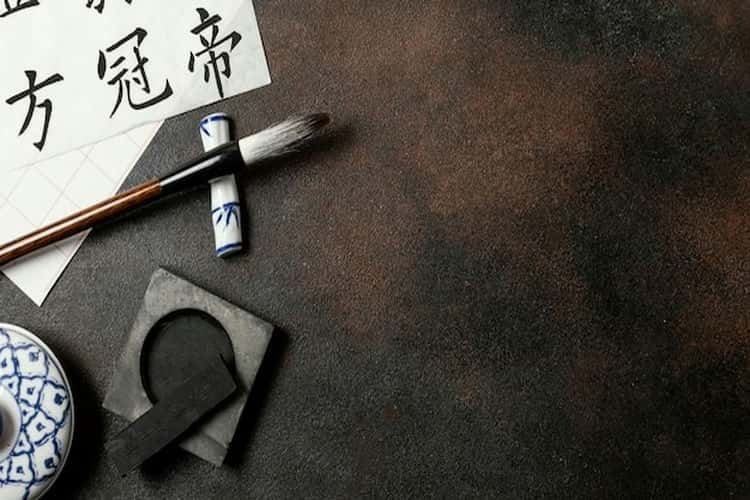Japanese katanas are legendary for their craftsmanship, history, and cultural significance. For collectors and enthusiasts, the idea of owning an authentic Japanese sword is both exciting and daunting. However, purchasing an authentic katana isn’t as simple as hitting “add to cart.” Japan has strict sword regulations, and international buyers must comply with various laws to ensure a secure and legal purchase.

This guide will explain how Japan’s sword regulations impact international buyers, the steps required to legally purchase and import a katana, and what to consider when buying from verified sellers. By the end of this post, you’ll have a clear understanding of how to bring the elegance of a Japanese sword from Japan to your home.
What Makes Japanese Swords Special?
Before we talk regulations, it’s important to understand why Japanese katanas are so revered. Authentic Japanese swords, also called nihonto, are meticulously crafted by master swordsmiths using centuries-old techniques. They hold significant cultural and historical value in Japan, often considered works of art as much as they are weapons.
But it’s this cultural significance that drives the strict regulations surrounding their sale and export. Japan is committed to preserving the authenticity of these blades and ensuring they don’t fall into the wrong hands.
Understanding Sword Regulations in Japan
Japan’s sword-related laws are outlined in the Firearm and Sword Possession Control Law (FSPCL). While Japanese katanas are not treated the same as firearms under this law, they are categorized as potentially dangerous weapons, meaning their sale, possession, and export are regulated.
1. Licensing Requirements for Sellers
Sellers of authentic Japanese swords must have a license to trade these weapons. These licenses are issued by the Japanese government and require the seller to meet strict criteria for storage, validation, and ethical trading practices. For international buyers, this means it is essential to purchase from licensed dealers to ensure you’re buying a legitimate sword.
Pro Tip: If the seller cannot provide licensing credentials or proof of legitimacy, walk away—unauthorized sales can land you in legal trouble.
2. Certification of Authenticity
Real Japanese katanas must be registered with the Japanese government and accompanied by a certificate known as a “Torokusho.” This document verifies that the sword is genuine and has been inspected by a governing authority. Without this certificate, the sword cannot legally leave Japan.
When purchasing a katana, always confirm that the seller provides the Torokusho. Reputable sellers will ensure this is included in the purchase price, but always double-check to avoid surprises.
How to Buy an Authentic Katana from Japan
Now that you’re familiar with the regulations, here’s a step-by-step guide to buying a Japanese sword legally and securely:
Step 1: Research Verified Online Sellers
There are several verified online platforms that offer authentic Japanese katanas for international buyers. Examples include Japan Sword, Aoi-Art, and Tozando. These sellers are licensed by the Japanese government and handle all legal documentation for export.
When browsing sellers, look for:
- Customer reviews and testimonials.
- Proof of licensing and authentication.
- Transparency in the buying process, including details on Torokusho and shipping.
Step 2: Check Import Laws in Your Country
Every country has its own laws regarding the import of swords. For example:
- United States: Japanese swords are legal to import as long as they are not considered contraband weapons, but customs may require documentation for verification.
- European Union: Some countries in the EU require special permits for owning weapons like katanas.
- Australia: Importing swords requires a special permit, and the blade’s length may be a determining factor.
Before purchasing, consult your country’s customs office or import/export regulations to ensure compliance.
Step 3: Secure Payment and Documentation
When purchasing your sword, make sure the seller provides:
- A detailed invoice, including the sword’s serial number and certification number.
- The Torokusho certificate.
- Shipping and handling details, including insurance coverage.
Use a secure payment method, such as a credit card or a trusted payment processor, to protect yourself from potential fraud.
Step 4: Shipping and Customs
Shipping an authentic katana involves a few considerations:
- Packaging: Katanas must be carefully packaged to avoid damage. Reputable sellers are experienced in ensuring safe delivery.
- Customs Fees: Be prepared to pay import taxes or customs duties depending on your country’s laws.
- Customs Inspection: Once the katana arrives in your country, it will likely be inspected by customs officials. Ensure all required documentation (such as the Torokusho) is included with the shipment to avoid delays.
Step 5: Displaying and Storing Your Katana
Once your sword arrives, it’s important to store and display it responsibly to preserve its condition and cultural integrity. Many collectors use display stands designed specifically for katanas, and some choose to store the sword in a humidity-controlled environment to prevent rust or damage to the blade.
It’s also important to check your local laws regarding sword ownership. Some jurisdictions require them to be stored securely or registered with local authorities.
Common Mistakes to Avoid
To ensure a seamless transaction and minimize potential difficulties, avoid the following typical mistakes:
- Buying from unlicensed sellers: Purchasing from unverified sources carries the risk of receiving counterfeit or illegally sold items.
- Skipping documentation requirements: Without a Torokusho, your sword cannot be legally exported from Japan.
- Ignoring import regulations: Always check your local laws before placing an order—penalties for non-compliance can be severe.
- Neglecting shipping insurance: International shipments can be unpredictable. Investing in shipping insurance is a must for valuable items like katanas.
Why Compliance Matters
Japan’s sword regulations are not just bureaucratic hurdles—they are vital for preserving the integrity of an ancient tradition. By buying a katana legally and responsibly, you’re not only ensuring compliance with the law but also supporting the community of artisan swordsmiths who continue this historic craft.
Bring the Samurai Spirit to Your Doorstep
Purchasing an authentic Japanese katana is a rewarding experience for collectors and enthusiasts alike, but it requires careful planning and compliance with both Japanese and international regulations. By working with licensed sellers, securing proper documentation, and adhering to import/export laws, you can enjoy the beauty and craftsmanship of a real Japanese sword with peace of mind.




